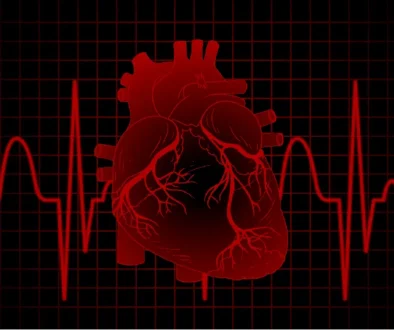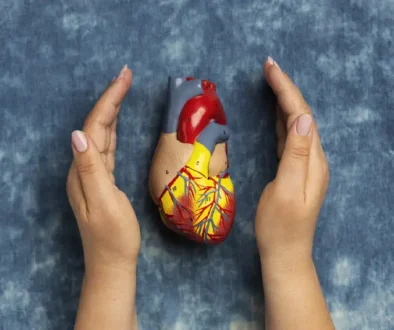Atrial Fibrillation (Irregular Heartbeat) – Unraveling the Mysteries
Atrial Fibrillation treatment
Imagine your heart fluttering irregularly, like a bird’s wings in flight. This phenomenon is known as atrial fibrillation (AF), a common cardiac arrhythmia that affects millions of people worldwide. In this article, we’ll delve into the intricacies of AF, exploring its causes, symptoms, diagnosis, treatment options, and lifestyle modifications. Buckle up as we journey through the beats and misbeats of the heart.
Understanding Atrial Fibrillation
At its core, atrial fibrillation is an irregular and often rapid heartbeat that can lead to a host of health complications. It often originates in the left atrium (the upper left chamber of the heart). The heart’s upper chambers (atria) quiver instead of contracting properly, affecting the blood’s efficient flow through the heart and body.
Instead of normal range of heart beats (60 to 100 beats per minute) the heart beats 100 – 200 beats per minute. Untreated A-fib can lead to congestive heart failure or stroke.
Causes and Risk Factors
Various factors contribute to AF, including age, heart disease, high blood pressure, excessive alcohol consumption, obesity, poor sleep, stress, anxiety disorders, thyroid disorders and other chronic health issues such as lung disease, sleep apnea, kidney disease and diabetes. Genetic predisposition can also play a role, making it imperative to understand the risk factors.
Atrial Fibrillation Symptoms – Spotting the Signs
Atrial fibrillation doesn’t always show noticeable symptoms, but when it does, they can range from palpitations, fatigue, and shortness of breath to dizziness, lightheadedness, fainting spells and chest pain. Recognizing these signs is crucial for seeking timely medical assistance.
Diagnosing Atrial Fibrillation
Diagnosing A-Fib involves a combination of medical history, physical examinations, and diagnostic tests such as ECGs, chest X-ray, Echocardiography, Cardiac MRI, Implantable loop recorder, standard exercise stress test and Holter monitors. Early detection can prevent complications.
Mapping the Irregular Rhythm: Types of AF
AF can be classified into paroxysmal, persistent, and permanent types based on the duration and frequency of irregular episodes. Understanding the type helps in tailoring the treatment approach.
Why It Matters: Complications Arising from AF
If left untreated, AF can lead to serious health issues such as stroke, heart failure, and blood clots. Being aware of the potential complications underscores the importance of managing the condition effectively.
Atrial Fibrillation Treatment Approaches
Treatment strategies for AF aim to restore normal heart rhythm, control heart rate, and prevent blood clots. Depending on the severity and patient’s health, various approaches can be adopted.
Atrial Fibrillation Medications: The Heart’s Harmony
Antiarrhythmic drugs and anticoagulants are often prescribed to manage AF. They help stabilize heart rhythm and reduce the risk of blood clot formation.
Cardioversion: Shocking the Rhythm Back to Normal
In some cases, electrical cardioversion may be recommended to reset the heart’s rhythm. This involves delivering a controlled electric shock to the heart.
Ablation Therapy: Navigating the Heart’s Electrical Pathways
Ablation, a minimally invasive procedure, aims to destroy or isolate the heart tissue causing the irregular rhythms. It’s a potential solution for those who don’t respond well to medications.
Surgical Interventions: When All Else Fails
For severe cases, surgical interventions like maze surgery can be considered. This involves creating scar tissue to redirect the heart’s electrical signals and restore regular rhythm.
The Role of Lifestyle: Prevention and Well-being
Lifestyle modifications are pivotal in managing AF. A heart-healthy diet, regular exercise, stress reduction techniques, and avoiding excessive alcohol and caffeine play a significant role.
Dietary Considerations for a Healthy Heart
Focusing on a diet rich in fruits, vegetables, whole grains, lean proteins, and omega-3 fatty acids can support heart health and reduce the risk of AF.
Exercise and Stress Management
Engaging in regular physical activity not only benefits overall cardiovascular health but also helps in managing stress, a potential trigger for AF episodes.
The Mind-Heart Connection: Emotional Well-being
Stress, anxiety, and depression can exacerbate AF symptoms. Prioritizing emotional well-being through relaxation techniques and seeking support can positively impact heart health.
Conclusion
Atrial fibrillation is a complex heart condition that demands attention and care. By understanding its nuances, identifying its symptoms, and embracing a holistic approach to treatment and prevention, individuals with AF can lead fulfilling lives with a healthier heart.
Frequently Asked Questions
Is atrial fibrillation a life-threatening condition?
Atrial fibrillation itself might not be life-threatening, but its complications can be serious. Timely atrial fibrillation treatment and management is essential to prevent complications.
Can lifestyle changes alone control AF?
For some individuals, lifestyle modifications can effectively manage AF, while others may require medical intervention.
Can young people develop atrial fibrillation?
Yes, although AF is more common in older adults, young people can develop the condition, especially if they have underlying risk factors.
Are all AF episodes symptomatic?
No, some AF episodes might not show noticeable symptoms. Regular medical check-ups can help in early detection.
Can stress trigger AF episodes?
Yes, stress can trigger AF episodes in susceptible individuals. Practicing stress-reduction techniques can be beneficial.




